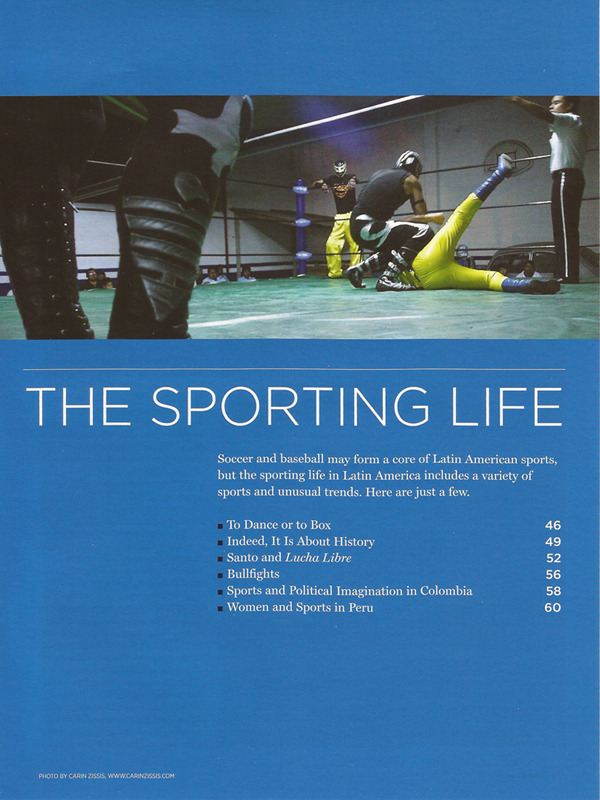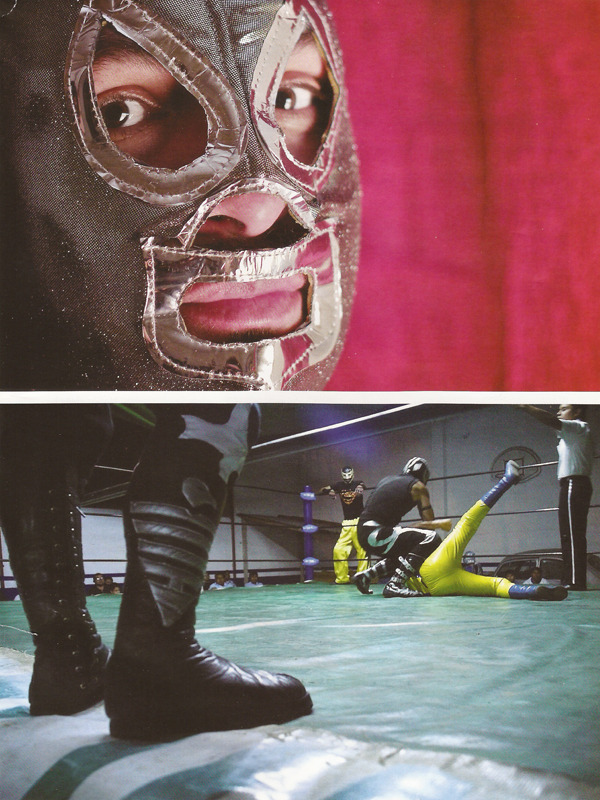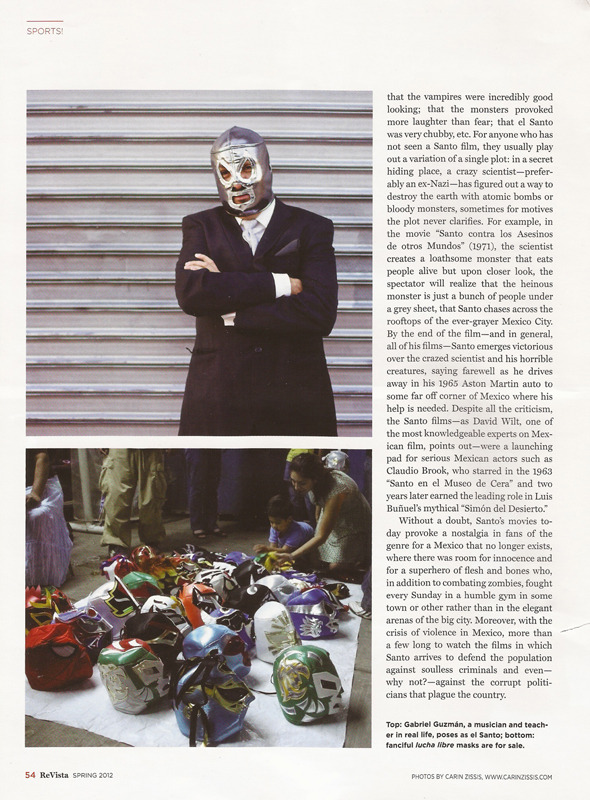AS/COA Online | Mexican President Unveils Long-awaited Energy Reform
/On August 12, more than eight months after the Mexican government launched a far-reaching reform agreement, President Enrique Peña Nieto presented what is arguably the most highly anticipated and polemical areas of that package: energy reform. The president outlined 10 areas of change for state oil firm Pemex and the Federal Electricity Commission (CFE). But perhaps most notable is the president’s proposal to change language in Article 27 of the Constitution and allow private firms to gain access to profit-sharing (but not production-sharing) energy contracts. Given the contentious nature of private-sector involvement in the national energy sector, will Peña Nieto succeed in passing a reform where his predecessors failed? While the reform faces opposition from the left-leaning Democratic Revolution Party (PRD), Peña Nieto’s Institutional Revolutionary Party (PRI) could have the congressional votes it needs with the aid of an alliance with the right-leaning National Action Party (PAN).
AS/COA Online | Xi's Trip to Mexico: Sino-Mexican Relations Revisited
/Chinese President Xi Jinping visits Mexico this week as part of the leader’s four-country visit to the Americas. Official Chinese news outlet Xinhua reports bilateral relations “have enjoyed sound development since the two countries established diplomatic ties 41 years ago.” But a look back at Sino-Mexican relations shows a path not without its share of potholes, worsened by Mexico’s growing trade deficit with China, among other reasons. Now six months in office, Mexican President Enrique Peña Nieto is taking steps to warm up the relationship. With new leaders in both countries—Peña Nieto’s December 2012 inauguration took place within a month of Xi’s ascension as head of the Communist Party—Beijing appears receptive to Mexico’s advances, especially given the possibility of a Mexican energy reform.
AS/COA Online | Honduras Follows In El Salvador’s Footsteps, Declares Gang Truce
/Leaders of Honduras’ two largest and most dangerous gangs announced a truce today during press conferences held in a San Pedro Sula prison. “We ask society and authorities to forgive us for the damage we have done,” said the head of the Mara Salvatrucha, also known as MS-13, of the agreement forged with the 18th Street gang. Eight months in the making, the truce was mediated by Roman Catholic Bishop Romulo Emiliano, with the backing of the Organization of American States’ Secretary for Multidimensional Security Adam Blackwell. The Honduran president voiced his support on Monday. The deal gives a heavy nod to a gang truce negotiated last year in neighboring El Salvador. That truce led to a hefty reduction in homicides, an accomplishment that Honduras—with a murder rate 10 times the global average—hopes to emulate.
AS/COA Online | Interview: El Salvador's Ambassador to the U.S. Rubén Zamora
/“[W]e have started what we call the two-track policy—continuing with the fight against crime in the country by stage agencies, but at the same time, town by town, trying to develop conditions for preventing violence and reintegrating those people into society in a productive way.”
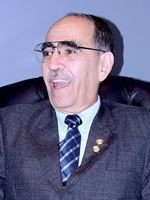 Appointed last month as the new Salvadoran ambassador in Washington, Rubén Zamora spoke with AS/COA Online’s Carin Zissis about the evolution of U.S.-Central American security policy in light of President Barack Obama’s recent trip to the region, saying: “Now the Obama administration is moving towards a more comprehensive approach, using the mantra, I would say, of partnership.” The ambassador also gave an overview of the Salvadoran government’s local strategies to drive down crime, as well as how to leverage initiatives such as the Partnership for Growth and CAFTA-DR. With a political career dating back to 1970, Zamora served twice as a legislative deputy in El Salvador’s National Assembly, was a member of the country’s Peace Commission, and ran, in 1994, as the first presidential candidate of the left’s coalition after the 1992 Peace Accords. More recently, he held the post of ambassador to India.
Appointed last month as the new Salvadoran ambassador in Washington, Rubén Zamora spoke with AS/COA Online’s Carin Zissis about the evolution of U.S.-Central American security policy in light of President Barack Obama’s recent trip to the region, saying: “Now the Obama administration is moving towards a more comprehensive approach, using the mantra, I would say, of partnership.” The ambassador also gave an overview of the Salvadoran government’s local strategies to drive down crime, as well as how to leverage initiatives such as the Partnership for Growth and CAFTA-DR. With a political career dating back to 1970, Zamora served twice as a legislative deputy in El Salvador’s National Assembly, was a member of the country’s Peace Commission, and ran, in 1994, as the first presidential candidate of the left’s coalition after the 1992 Peace Accords. More recently, he held the post of ambassador to India.
AS/COA Online: In light of U.S. President Barack Obama’s recent meeting with leaders in Costa Rica, including with President of El Salvador Mauricio Funes, what were some of the accomplishments? And what more do you think should have been done?
Ambassador Zamora: For us, the meeting between President Obama and the seven Central American and Caribbean head of states was important because we learned about U.S. foreign policy on Central America. The discussion was very frank among the presidents and it was clear for us—and this seems to me an important achievement—that President Obama clearly was for a more integrated approach to the question of security. That was one of the main issues in the talks among the heads of states. We had mostly been used to the United States insisting more and more on the question of controlling crime; that is necessary, but is very insufficient to achieve results. Now, it seems to me, Washington is having a more comprehensive, holistic approach to the problem that we are facing in Central America, both in terms of the crime and in terms of Central America being a region through which South American drugs travel to the United States.
AS/COA Online: In connection with that, I wanted to ask about CARSI [Central America Regional Security Initiative]. In March, Assistant Secretary of State for International Narcotics and Law Enforcement Affairs William R. Brownfield gave remarks at our organization, and he said: “What we are doing today is actually very different from what we thought we were going to be doing four years ago.” What do you think needs to happen to improve security cooperation on a regional level? And how would you suggest that CARSI could evolve further?
Zamora: The starting point now is that the best strategic view when it comes to security in Central America, especially in the northern part—that means Guatemala, Honduras, and El Salvador—is that you have to attack the problem with a two or three-track policy. You cannot do it just with a single line of policy, or the tactic of controlling crime without addressing the question of the rehabilitation of gang members into mainstream society...
AS/COA Online | Mexico Arrests Teachers' Union Boss Elba Esther Gordillo
/The day after Mexican President Enrique Peña Nieto inked broad education reform legislation, his government took another major step in the sphere of Mexican education by arresting the head of the country’s teachers' union. On the evening of February 26, Elba Esther Gordillo was taken into custody for embezzling some $156 million in funds from the Mexican Educational Workers Union (SNTE). In a televised statement last night, Mexican Attorney General Jesús Murillo Karam gave an overview of illicit money transfers and misuse of funds, from transfers to bank accounts in Lichtenstein and Switzerland to big purchases at luxury department stores. “I want to remind everyone that this money came from the savings accounts of education workers, the union, and was used, among other things, to pay a Neiman Marcus credit card for an account that came close to $3 million.”
AS/COA Online | Gun Laws in Mexico
/Excerpt from Explainer: Gun Laws in Latin America’s Six Largest Economies, co-authored with David Gacs and Rachel Glickhouse. Republished in VOXXI. Led to interview with Fox News Latino.
Although Mexicans have a constitutional right to own guns, one obstacle limits gun purchases: there is only one gun store in the country, located in Mexico City. Still, Mexico ranks seventh worldwide in terms of the number of privately owned guns and violence stemming from a battle against organized crime in recent years has raised concerns about gun smuggling, particularly from the United States.
AS/COA Online | Mexico’s Peña Nieto Visits Washington to Refocus Relations
/AS/COA Online | Website Relaunch
/Led the Summer 2012 relaunch of AS/COA Online (www.as-coa.org), which unified the prior version of the site for sister organizations Americas Society/Council of the Americas into one cohesive identity. The refreshed site offers interactive guides to top Latin American issues, social media integration, simplified navigation, strong imagery, a new multimedia section, and improved ways to highlight media hits.

AS/COA Online | Election Guide: Mexico's 2012 Vote
/On July 1, nearly 80 million Mexicans will be eligible to vote in elections that could be a game changer for the country. The National Action Party (PAN) has held the presidency since 2000, when the Institutional Revolutionary Party (PRI) finally lost its seven-decade-long power grip. Now the PRI may be poised for a return, given that from the beginning of the campaigns, PRI candidate Enrique Peña Nieto has polled as the frontrunner. But the race isn’t over yet. The portion of undecided voters remains in the double digits and Peña Nieto’s poll lead over second-place Andrés Manuel López Obrador of the Democratic Revolutionary Party (PRD) has narrowed as the voting day nears.
Get coverage, links, polls, social media information, and more from AS/COA Online.
Quick Facts
The 2012 Mexican presidential election is July 1 and the winner will assume office on December 1. By law, Mexican presidents are restricted to one six-year term, known as a sexenio. Unlike in much of Latin America, there are no runoff elections in Mexico. The candidate who wins the largest number of votes on July 1 will replace President Felipe Calderón, who took office in 2006.
AS/COA Online | Exclusive Interview: Juan Carlos Rulfo and Daniela Alatorre on the Making of ¡De Panzazo!
/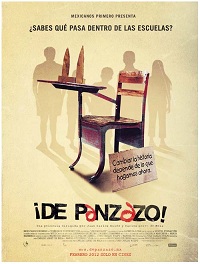 As the documentary ¡De Panzazo! explains, Mexico is the OECD member that spends the most on education in terms of public spending, yet its education system ranks last in terms of quality. ¡De Panzazo! (Barely Passing) director Juan Carlos Rulfo and producer Daniela Alatorre spoke with AS/COA Online’s Carin Zissis after the film’s New York premiere on June 4 at Americas Society. With the support of civil society group Mexicanos Primero, the documentary calls for quality education and teacher evaluations in Mexico. Rulfo and Alatorre explain how they became involved in the project, involving Mexican students in the film’s production, the need to share best educational practices on an international level, and the impact of the film during a Mexican election year.
As the documentary ¡De Panzazo! explains, Mexico is the OECD member that spends the most on education in terms of public spending, yet its education system ranks last in terms of quality. ¡De Panzazo! (Barely Passing) director Juan Carlos Rulfo and producer Daniela Alatorre spoke with AS/COA Online’s Carin Zissis after the film’s New York premiere on June 4 at Americas Society. With the support of civil society group Mexicanos Primero, the documentary calls for quality education and teacher evaluations in Mexico. Rulfo and Alatorre explain how they became involved in the project, involving Mexican students in the film’s production, the need to share best educational practices on an international level, and the impact of the film during a Mexican election year.
AS/COA Online | Youth Protests Seek to Stir up Mexican Presidential Race
/(co-authored with Mark Keller)
Throughout the Mexican electoral race, not much has succeeded in moving the needle when it comes to the frontrunner’s commanding poll lead. Institutional Revolutionary Party (PRI) candidate Enrique Peña Nieto’s lead continues to hover in the double digits, as it did at the official start of the campaign in March. But a student movement, dubbed #YoSoy132, emerged in recent weeks to shake up the election, protesting what appears to be an inevitable return to a presidency by the PRI—the party that held control of the presidency for seven decades before the National Action Party (PAN) victory in 2000. In particular, the protesters contend that Mexico’s top media outlets favor Peña Nieto. Opinions diverge on the movement, with some viewing it as an optimistic sign that young voters are shaking off political apathy. But others argue the movement’s support base hails from the left-leaning Democratic Revolutionary Party (PRD), whose candidate Andrés Manuel López Obrador (commonly known as AMLO) refused to concede loss during the last presidential election. Across the spectrum, many question whether it can have an impact on the outcome of the July 1 presidential vote, given that voter support for Peña currently stands at 46 percent—more than 20 points higher than either AMLO or PAN candidate Josefina Vázquez Mota.
ReVista | Photography for "Santo and Lucha Libre"
/AS/COA Online | Interview: Mexican Undersecretary for Foreign Relations Lourdes Aranda
/Mexican Undersecretary for Foreign Relations Lourdes Aranda discusses her country’s role as this year’s G20 host. Aranda, who serves as a G20 representative, explained why Mexico's role in guiding the G20 agenda toward achieving goals in the areas of green growth, food security, and economic stability.
Video edited by David Gacs.
AS/COA Online | Capriles Wins Venezuelan Primary to Become Chávez's Challenger
/Henrique Capriles Radonski won Venezuela’s opposition primary on February 12, making him the top contender in the race against President Hugo Chávez. Capriles, governor of the state of Miranda, pulled in 1.8 million of the 2.9 million votes cast. He will serve as the nominee of the Coalition for Democratic Unity (MUD), an alliance of opposition parties formed to more effectively compete with Chávez’s United Socialist Party of Venezuela. A former legislator, Capriles faced four other candidates but faced his greatest competition from Pablo Pérez, governor of Zulia state. Another candidate, Leopoldo López, dropped out of the race on January 24 and put his support behind the frontrunner, giving Capriles a last-minute boost. In hopes of overcoming past electoral setbacks, MUD candidates signed a September 2011 pact agreeing to back the primary winner to avoid possible splintering of the opposition vote in the October 7 election. The MUD also agreed to a unified platform last month, pledging to combat the country’s violent crime problem, engage in democratic reconstruction, and pursue a sustainable economic model. AS/COA’s Rachel Glickhouse and Guillermo Zubillaga note in an election overview that the February 12 vote “test[s] the momentum of support for the opposition coalition before the general election.” Can Capriles, backed by a unified opposition, compete with the loquacious, long-governing Chávez?
AS/COA Online | Pérez Molina Takes the Helm in Guatemala
/For the first time since Guatemala’s return to democracy, an ex-general took the presidential helm on January 14. “Change has arrived,” said new President Otto Pérez Molina during his inauguration. He also acknowledged that he enters office at a time when the country faces “many problems and enormous challenges.” Pérez Molina of the Patriotic Party won a November runoff election with the promise of a mano dura—or iron fist—to fight criminality and rein in the country’s high murder rate. His inaugural speech urged Mexico, Central America, Colombia, and particularly the United States to step up cooperation in the fight against organized crime. Guatemala’s high poverty rate and economic concerns will be crucial issues for the administration as well. But, with over two-thirds of Guatemalans viewing violence as the country’s top problem, combating crime will be at the top of Pérez Molina’s agenda. How will he balance these challenges with his military past?
Americas Quarterly | AQ Slideshow: New York City Celebrates Three Kings Day
/AQ Web Exclusive explores the El Museo del Barrio's 35th Annual Three Kings Day Parade in Spanish Harlem.
All photos by Carin Zissis.
AS/COA Online | Mexico's Electoral Race Takes Shape
/As Mexican President Felipe Calderón nears his final year in office, candidates are already lining up at the gate for the 2012 presidential race. On Sunday, current poll frontrunner and ex-Governor of the State of Mexico Enrique Peña Nieto registered as the official candidate of the Institutional Revolutionary Party (PRI). This move came two weeks after the left-leaning Party of the Democratic Revolution (PRD) picked 2006 losing presidential candidate and former Mexico City Mayor Andrés Manuel López Obrador to compete again. Presidents can’t seek reelection in Mexico and the governing National Action Party (PAN) slated its primary for February. Some observers say that flagging support for the current administration coupled with the PAN’s delay in naming a candidate could hurt the conservative party’s chances. Still, campaigns don’t officially get underway until March and, though Peña Nieto polls over 20 points ahead of other candidates, it’s a long race before the country’s three main parties cross the finish line on July 1, 2012.



